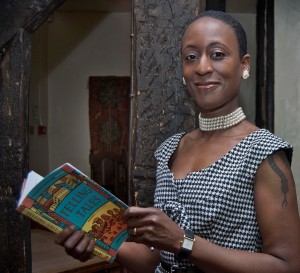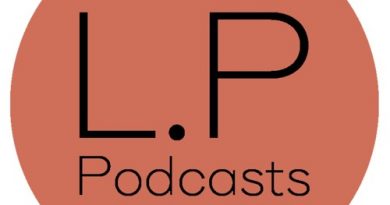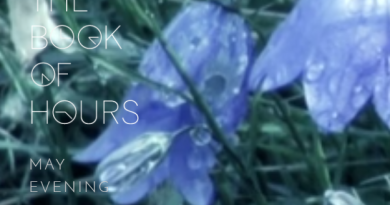Licking Our Lips (Bristol, 29/11/14)
-Reviewed by Mab Jones–
We travel East to Easton, in search of poetry, and in the Greenbank pub we find it: four poets in fine form, helmed by able host Polly Moyer, also a poet, which makes five mouths at the mic, and well worth the modest five pounds entry fee.
Polly begins with a welcome, expressing her excitement at the fact that four normally far-flung poets have been brought together under one roof. This is followed by the sad news that this is to be her last organised occurrence, as she has been diagnosed with a rare condition, Mal de Barquement Syndrome. Contributions for the charity Find a Cure are, therefore, also welcome at this event, besides the usual sales of books and CDs which the poets have brought with them.
Polly’s initial poems, about Pizza, the Syndrome, and another on ‘Reported Speech’, are all very different, beginning with a piece which is light-hearted and celebratory, to others which are heavier, more serious, and tinged with sadness. A wry humour runs throughout, however, and act as an antidote to some weighty concerns. I enjoyed these poems, and was glad to hear a couple more after the break – one about living in America and another on New Mexico – but time being what it is we are forced to move on swiftly to the invited guests, the first of these being The Speech Painter.
A former member of 90s poetry pop group Atomic Lip – three out of four of them are reading here tonight – these are poems which put the ‘pop’ into ‘pop culture’. Rhyming, rhythmic, upbeat, and engaging, the humour is apparent from the start and continues apace. “You put the lie in believer” is one of many amusing lines from the opening piece, a lampoon of the traditional love poem. ‘I Was A Teenage Elvis’ and ‘Jehovah Baby’ are full of the same wit and zing, but it is final piece ‘The Twat In The Hat’, a parody of Dr Seuss’s classic, which had the majority amused. The poet, here, has kept not just to Seuss’s original rhyme scheme, but has also replaced words according to their original syllable count e.g. one syllable words with one syllable words, two with two, etc. The end result is a hilarious and well done piece of work. This will hopefully be available in print soon.
Lucy English is a poet I’ve been meaning to see for a long time. In contrast to the previous reader, her voice is soft, mellifluous, and breathy. It has an ethereal quality, and her first poem, with its images of street angels and dream catchers, suits this, as do others, such as her piece about seeing a ‘ghost’ in Clapham (the ghost being a face which resembles that of her deceased father). The poet’s languid voice contrasts sharply with some themes: possible danger in an urban setting; the sudden and unexpected resurgence of grief. Both poems are city-set, and there is a further disparity between these and the nearby countryside underlying some of the pieces, too: street scenes versus “the shining distant hills”. These unsettling aspects are countered by other poems which tackle topics such as aging with a lively humour. The poem for and about ladies of a certain age, and their “elastic knickers”, certainly draws a lot laughter and is my personal favourite of English’s set.
After the break, Steve Tasane is another ex-Lip lyricist who treats us to a total of six poems. A rap, which I feel sure young people would love, is followed by a poem about books, which prompts a person in the audience to stand and let everyone know about planned budget cuts to Bristol libraries. It’s great that poetry can provoke this sort of response, of course. Tasane’s next two pieces are based on characters from his novel for young people, and rather more serious in tone; while the final two poems respectively use Cockney rhyming slang to tell a comic tale, and satirize those who once enjoyed “having it large and that midweek comedown” but are now suffering from a “midlife comedown” instead.
Our final poet is Patience Agbabi. My fellow poetry seeker is clutching her Telling Tales in his bag, and we are both equally delighted that this is the collection Agbabi chooses to read from. Amongst those performed are my two particular favourites: the rap-like ‘Prologue’, told by an ex-bouncer turned gastro pub manager; and the bawdy, bolshy Wife of Bath’s story. Agbabi displays a great penchant for comic telling and timing in these readings, shifting persona and putting on accents with a fine, even slightly enviable, fluidity. I, for one, feel fully immersed in these differing worlds; the varying characters are evoked with clarity and aplomb; and the stories themselves, of course, are pithy, engaging, and written in a rich range of styles.
We end the night with a final poem from each of the poets: English’s satirical ‘I’m a Liar’; The Speech Painter’s Ebay epic; Tasane explaining wittily what ‘Love Is…’; and Agbabi’s Friar’s Tale, a.k.a. ‘The Devil in Cardiff’.
Which is where we must return to, happy to have seen and heard four wonderful poets at this event, but sad indeed that Moyer will organise no more.





